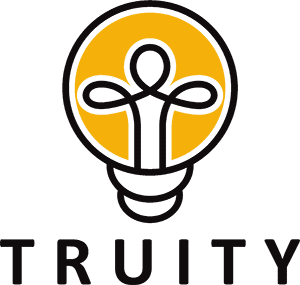The Enneagram is a tool to help individuals understand their personalities and identify patterns within their lives. An Enneagram Type 1 is commonly known as “The Perfectionists” or “The Improver.” Improving self-awareness and recognizing re-occurring traits is especially appealing to an enneagram type 1.
The enneagram type 1 or “perfectionist” personality is determined to uphold specific values and standards they deem essential; however, they often feel it is necessary to justify their behavior. Enneagram ones can lead successful lives by achieving their goals; however, they can be too strict on themselves and others along the way without awareness.
Understanding an Enneagram type 1 can be a little intimidating at first. While this type may seem to hold everything together at face value, under the surface, enneagram ones can be brimming with unresolved expectations and desires. Read on to learn more about Enneagram Type 1’s and how to recognize the most common characteristics.
Enneagram Type 1 Characteristics
The Enneagram type 1 personality cares deeply about quality and the pursuit of improving standards to accelerate purpose and goodness in the world around them.
Known as perfectionists, enneagram ones will uncompromisingly work with laser focus, strictly adhering to an ideal standard they believe is good. Enneagram Ones will tirelessly work until they’re content with results, which can have positives and negatives, depending on the situation.
When healthy, an enneagram type 1 can achieve their goals and enjoy success. When an enneagram one is unhealthy, negative situations can cause them to become obsessive.
The following headings will explore the dichotomy of how enneagram 1’s behave due to their motives. The driving force behind a one’s desire for improvement can be a catalyst for change or crippling to the individual.
The characteristics of the enneagram type 1 often develop due to growing up in unstable, chaotic environments. Within these structures, enneagram ones begin constructing ways to establish order and purpose.
What It’s Like to Be an Enneagram 1

An Enneagram Type 1’s motivation is to be good and virtuous. These principles can develop differently and manifest in a variety of ways. Typically, you can identify the characteristics of an enneagram within their work on a project or career. Their attention to detail and ability to create a structure to accomplish tasks is uncanny.
The motives of an enneagram type 1 come from a strong desire to justify and direct their passions into something they believe to be correct. An enneagram one exists within the Gut Triad, and their motivation comes from a fear of being evil or wrong.
Because an enneagram one sees anger as an undesirable trait, this creates internal turmoil to process. Often a strong sense of anger can brood under the surface when their improvement efforts aren’t enough. Their desire for integrity coupled with unresolved frustration can be troubling.
Enneagram 1’s are swirling with a passion for creating structure out of chaos and will use rationale to regulate their emotions so that their work is admirable. To uphold their strict standards, they practice self-discipline and organization to ensure everything is as good as possible.
An enneagram type 1 can also be sacrificial, cutting anything out that stands in the way of improvement. Concerning decisions, enneagram ones are cautious, as any deviation from their plan could compromise its quality.
Unfortunately, it is easy to misunderstand The Perfectionist. While their mission is to help and improve to benefit others, they can come across as cold, calculated, or preoccupied with their work. This misunderstanding will hurt this type because their desire to improve comes from a strong sense of urgency to make things better.
An enneagram type 1 is unlikely to abandon their work or beliefs due to temptations or someone else’s words. Instead, they will meet these objections with straightforward communication and unwavering commitment to their goals.
Each type needs to discern whether their goals and patterns lead to healthy or unhealthy behaviors.
Healthy Enneagram 1
A healthy enneagram 1 is aware of their tendency toward being rigid and seeks to practice empathy when communicating their expectations. To avoid being blinded by their ambitions, they will seek to understand the more significant interests of the group rather than their desires.
When healthy, an Enneagram One can hold space for competing opinions without being overly critical or harsh. They can relax, knowing they can disagree without judging or demanding.
Healthy enneagram type 1’s can approach their work with reason, avoiding obsessive characteristics. They can hold a strong passion for work and the ability to take a break and enjoy other things. A healthy Enneagram One can loosen up, realizing not everything has to be so serious.
For one’s, learning to give themselves and others grace is an essential step toward growth.
Unhealthy Enneagram 1
An unhealthy enneagram 1 tends to focus on the shortcomings of others. Being critical of others, they don’t have to face their problems, allowing them to safeguard their misshapen standards of what is right.
When unhealthy, an Enneagram One will create a narrative in their mind that includes or eliminates details that best support their point of view. Doing so creates a dissonance between right and wrong concerning how they interact and communicate with others.
Overlooking their judgemental attitude, they fail to see the hypocrisy of their standards. This misstep can lead to misunderstanding themselves and others, preventing any meaningful or productive change in their life.
An unhealthy Enneagram type 1 will be unable to focus on achieving their goals and express frustration when their strict expectations are unmet. Even so, they will look for others to blame rather than take responsibility for bettering their lives. This destructive behavior allows for a construct within them that they are still correct and that everyone else is wrong.
Concerning their goals, an unhealthy one can become an obsessive workaholic. This pattern can develop depressive or obsessive-compulsive disorders leading to breakdowns.
Unfortunately, the driving passions within enneagram 1’s can manifest in cruel ways that destroy themselves and those around them. Without realizing their standards, unhealthy practices can develop to preserve their self-image and need to be correct.
Enneagram Type 1 Relationships

Like other areas of their life, enneagram type 1’s have high expectations concerning relationships with others—their desire to improve flows into every part of their life. For Enneagram Ones, this includes how they conduct themselves, how their relationship progresses, and how their partner acts. The relationship must change for better or worse if these aspects do not meet their standards.
An Enneagram 1 in a healthy relationship can be a great source of enthusiasm for moving toward development and more profound growth. For an Enneagram 1, it is crucial to establish clear relational expectations.
If both people agree on the relationship, an enneagram one will work hard to uphold the agreement. This commitment involves making good on promises, complex decision-making, and supporting one another in personal growth.
When arguments arise, an Enneagram 1 can be stubborn, unwilling to admit any wrongdoing, prioritizing the preservation of their self-image.
Enneagram 1’s can be domineering, abusive, and controlling in an unhealthy relationship. An unhealthy Enneagram 1 will focus on changing the partners’ behaviors to meet their standards.
For an enneagram 1 to be relationally successful, they must understand their partner’s needs and desires. Healthy relationships require both people to hold certain ideas lightly and understand when compromise is best. This aspect is not always easy to accept for an Enneagram One because they strictly adhere to their standards and principles.
When in a relationship with an enneagram 1, you should seek to understand expectations by openly discussing unknown areas.
Keep in mind that Enneagram Ones have a deep desire to be virtuous, and with proper communication, you can establish strong ties around areas of agreement.
Type 1 Enneagram Careers
Often, the beliefs and opinions of an enneagram type 1 will strongly influence their career path. Within their career, enneagram 1’s values freedom to work independently after defining a clear goal. They appreciate the chance to explore their ideas while holding others loosely, if necessary.
An Enneagram 1 will see a project through completion and work tirelessly to ensure it is correct. Because quality is essential, Enneagram Ones prefer to devote their entire focus to one project at a time rather than dividing their attention among several smaller tasks.
While 1’s enjoy autonomy, they can work harmoniously with others who share a similar vision and are open to feedback. A 1’s boss must operate fairly and justly, being sure not to overlook their opinions.
Healthy enneagram Ones understand and accept differences within the workplace if explained. Allowing arbitrary rules and policy can give a One a little room to work on their ideas. Also, ignoring their ideas will frustrate and drain them, leading to a severe drop in the quality of their work. Enneagram 1’s will find it difficult to enjoy their work when they cannot own the process.
It’s characteristic for enneagram 1’s to focus on growth and improvement. Ones are problem-solvers and will find ways to create accuracy efficiently.
Below is a shortlist of the best jobs for an Enneagram Type 1:
- Lawyer,
- Doctor,
- Social worker,
- Journalist,
- Guidance counselor,
- Judge,
- And politician.
Enneagram Type 1 Celebrities

Celebrity examples of type 1’s include the following:
- Mahatma Gandhi,
- Steve Jobs,
- Elizabeth Warren,
- C.S. Lewis,
- Eleanor Roosevelt,
- Martha Stewart,
- Meryl Streep,
- Jane Fonda,
- Nelson Mandela,
- Michelle Obama,
- And Captain “Sully” Sullenberger.
Key Enneagram Type 1 Traits
An enneagram one is very rational. Ones are black and white, moral, and focused on perfectionism. Also, a type one often feels responsible for improving themselves and the world around them.
An enneagram one concerns themself with action. However, this action is oriented internally. And, therefore an Enneagram One is typically self-disciplined, organized, and concerned with quality.
The core desire of an enneagram one is to have integrity, be good, full of virtue, and correct.
The message an enneagram one most wants to hear from others is something like, “You are good.”
The gifts of an Enneagram One include:
- Principled: Ones value integrity and want to lead by example. They stand for what is right and good.
- Objective: A One can see and judge details, people, and situations objectively, without emotion.
- Conscientious: Reliable and responsible, Ones stick to their word and diligently sees things through to the end.
- Structured: Ones enjoy structuring things and are naturally adept at organizing, prioritizing, and creating an order.
- Quality-minded: Ones have a knack for detail and will pay attention to quality standards and the application of rules and procedures. ( ntegrative9.com)
Characteristically, Enneagram Type 1’s have a deep desire to choose what is right, which motivates and guides their actions throughout life. B following their rationale, they strive toward moral goodness and justice.
Further Signs Of An Enneagram Type 1
Strengths Of An Enneagram Type 1:
- Defending others: by being selfless, type 1’s achieve a moral high ground,
- Attention to detail: to uphold quality, they will scrutinize their work until they believe it’s perfect,
- Idealism: 1’s can see beyond how things are and work towards what they can be,
- Motivated: 1’s act morally based on their values and don’t require external rewards to act right,
- Community spirit: the path for a 1 is not entirely internal and often sees them interacting with others to bring about positive change.
Common Weaknesses Of An Enneagram Type 1:
- Obsessive: 1’s can become so invested in their ideals that they may not be happy until they reach unrealistic standards,
- Unrealistic: if reality and their ideals have stark contrasts, they may develop a distorted perspective to cope with these differences,
- Overly Critical: 1’s can sometimes focus on the flaws of themselves and others to an unhealthy degree,
- Self-righteous: by becoming so entrenched in their own ideal, they may label any outside perspective as wrong or immoral without a chance to understand.
For enneagram 1’s to develop the strengths associated with their personality, they must be humble and accept flaws in themselves and others.
Enneagram Test Type 1
If your gut tells you that you could be an Enneagram type 1, but you still are a little unsure, you can take a test. We recommend the Truity Enneagram Test.
The Truity online Enneagram test will provide a score to indicate how strongly your answers identify with each of the nine Enneagram personality types. These scores are helpful because you can use them to determine traits you are familiar with or recognize areas you overlook.
To take the Free Enneagram Test offered by Truity, click HERE!
Truity also provides a six-page report of in-depth information and questions to help you identify your enneagram type. Over one million users have taken this test and have been satisfied with their results.
Want to pass on a test, or do you want to do more research to determine if you are an Enneagram Type 1? Check out the post: Learn How to Find Your Enneagram With 4 Helpful Tips.
Enneagram Type 1 Conclusion
Using the Enneagram is not about conforming to a stereotype; instead, it can help individuals identify traits and develop healthy patterns to overcome the shadow sides of their personality.
Enneagram type 1’s walk a precarious line between passion and obsession in life. Driven deeply by principles and a need to be moral, they base their lives on what they believe is correct. This path can take a wrong turn and lead to a negative outlook on themselves and their surroundings. If channeled into a positive direction, 1’s can become shining examples of justice to those around them.






